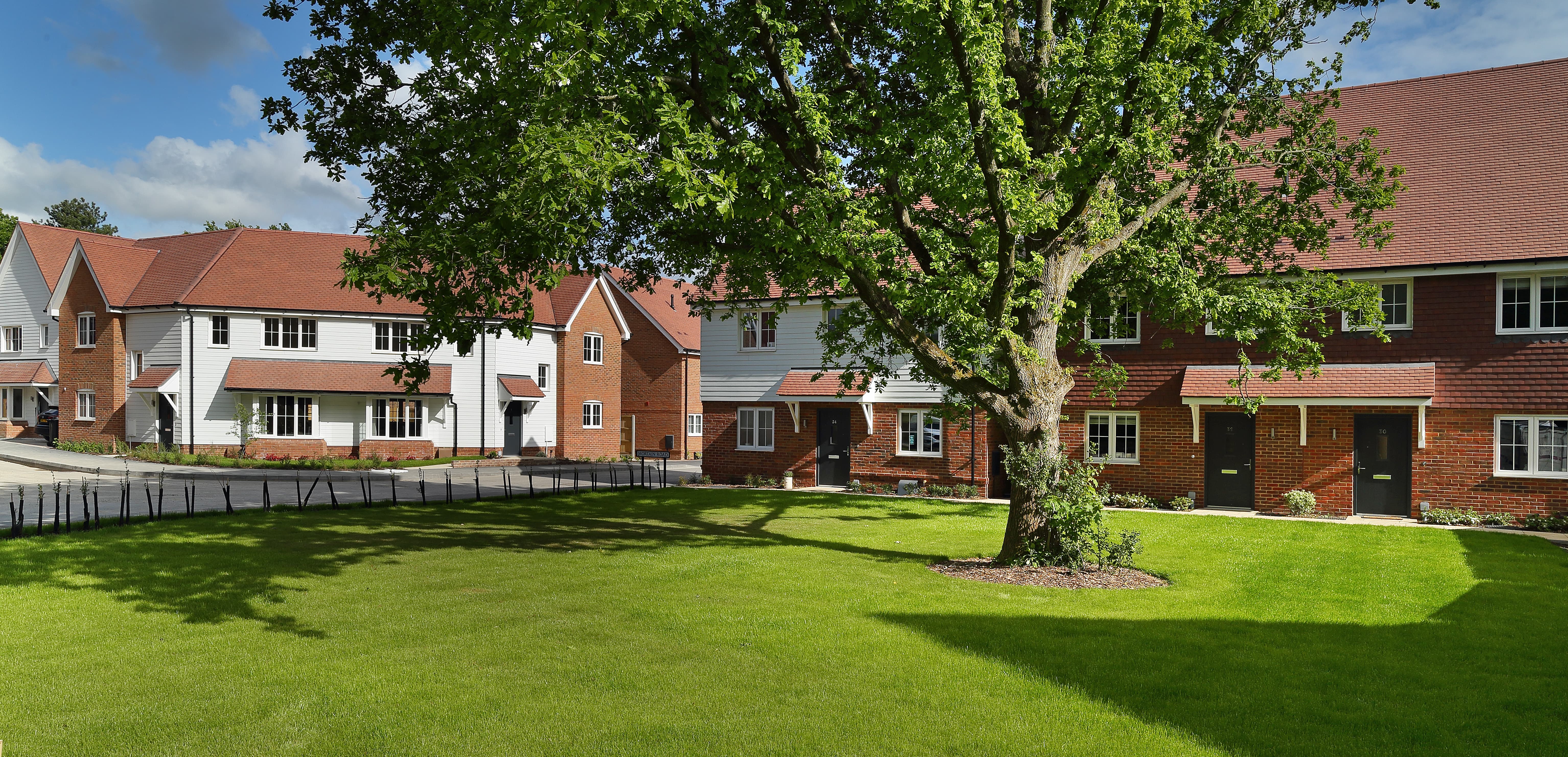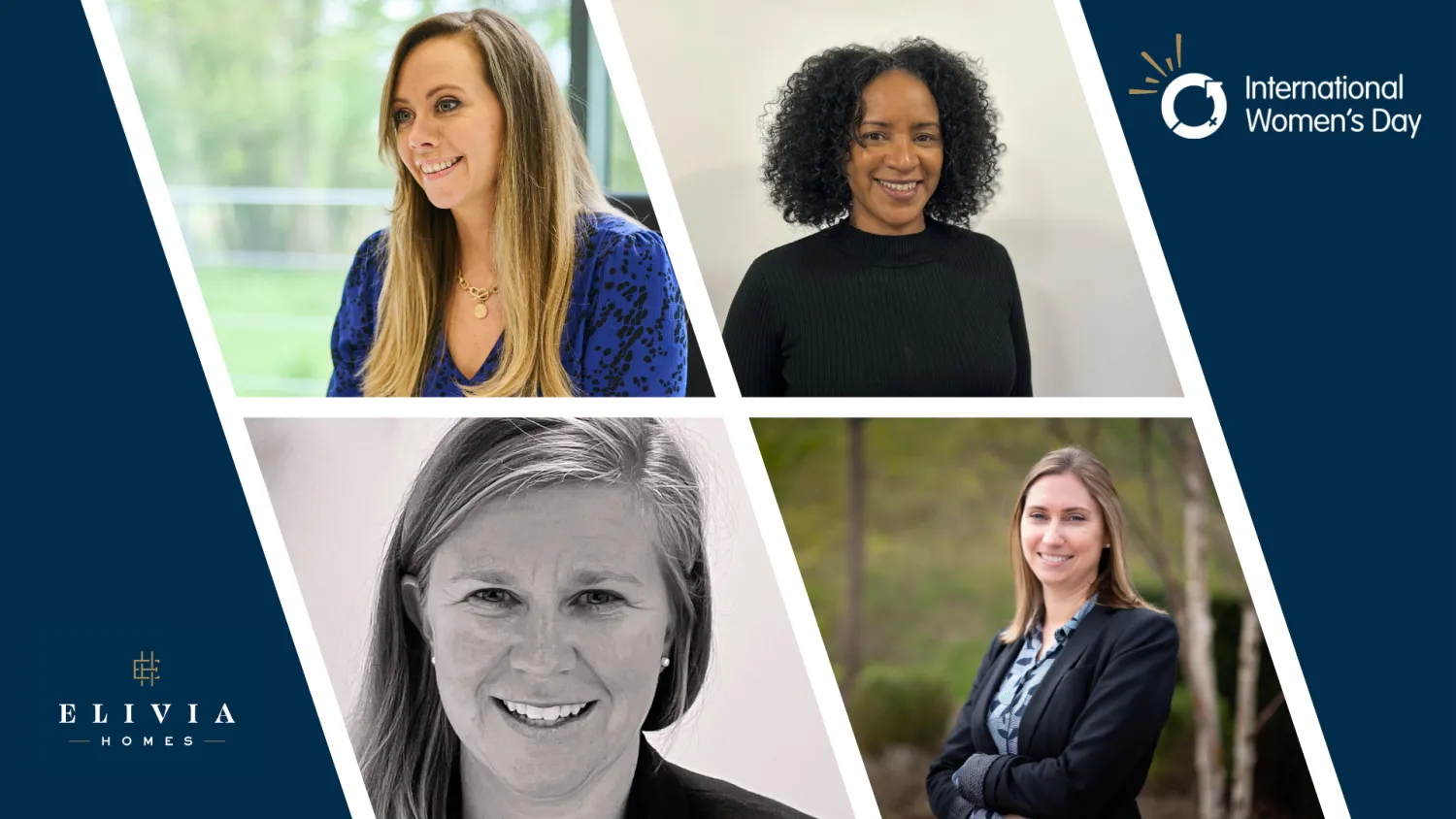International Women’s Day is the perfect time to reflect on the profound impact women have in various industries, particularly in housebuilding, where their contributions are not just building homes but also shaping communities. At Elivia Homes, we’re incredibly fortunate to work with several influential women, who are helping shape the future of the built environment.
We spoke with four of our female colleagues across our Group business and regions, exploring their journeys, achievements, and insights into the diverse world of housebuilding.
- Sarah Turpin (ST) – Sales and Marketing Director
- Sarah Mason (SM) – Associate Land Director
- Emma Challenger (EC) – Head of Strategic Land
- Kellie Young (KY) - Digital Operations Manager
What inspired you to pursue a career in the housebuilding industry?
SM: My passion for the built environment led me to qualify as an RICS member at the beginning of my career, where, for around 15 years, my specialism involved advising developers on residential development and affordable housing matters. Fast-forward to now working with the land team at Elivia, I thoroughly enjoy being involved in creating high quality schemes, including the provision of affordable housing. It’s immensely satisfying to see a blank canvas piece of land that I’ve been involved with, take shape to become long lasting homes that people are proud to live in, and to be a part of the immediate and wider community.
EC: I studied Geography at University, which then led me to become a qualified Town Planner. After working as a planning consultant for most of my career, I decided that I wanted to go client-side to broaden my understanding of the commercial aspects of residential development. This led me to work in the housebuilding industry, where I became involved with land acquisition and developed a greater understanding of the technical issues facing housing delivery. After five years, I continue to enjoy seeing how the projects I work on end up as high-quality new homes for sale.
ST: I have always been inspired by the design of beautiful homes and communities. The concept of transforming a derelict parcel of land or an abandoned building into something both functional and visually stunning has always filled me with a profound sense of achievement. There’s something incredibly fulfilling about taking a vision and turning it into a reality that not only enhances the landscape around but also serves as the foundation for people’s lives. It’s not just about building houses; it’s about creating environments where people can thrive, build memories, and feel rooted.
KY: I’ve always been passionate about problem-solving and digital transformation. When the opportunity arose to bring my expertise into housebuilding, I saw an industry that was ripe for innovation. The idea of improving processes, streamlining operations, and enhancing efficiency in a traditionally hands-on sector really excited me.
How does diversity in teams benefit the overall success of housebuilding projects?
KY: Diversity isn’t just a buzzword - it drives success. A diverse team brings different perspectives, problem-solving approaches, and innovative thinking. In housebuilding, this means creating homes and communities that truly reflect the needs of the people who will live in them. When teams are diverse, we challenge traditional ways of thinking, foster creativity, and ultimately build better homes.
ST: The presence of women in leadership roles, whether as engineers, architects, or managers, has been shown to enhance team dynamics, improve communication, and lead to better outcomes. Women often emphasise collaboration, attention to detail, and a focus on long-term sustainability - qualities that are essential in delivering successful and resilient housebuilding projects. When women are empowered and represented in the industry, they help drive a more inclusive and well-rounded approach to building communities.
Moreover, promoting gender diversity within construction helps break down traditional stereotypes, encourages more women to enter the field, and creates a more balanced workforce.
What’s one thing you wish more people knew about working in housebuilding that would surprise them?
EC: I wish more people understood the financial risks that housebuilders must take, in particular how the outcome of the planning process is so uncertain and yet hugely expensive. It is impossible to predict exactly when a planning permission will be granted, and whether there will be any external influences such as water neutrality, biodiversity net-gain off-setting, or other off-site works that might be time-constrained. This has implications for the construction process, particularly where ecological surveys are required which are restricted by the seasons. It’s widely assumed that housebuilders are in complete control of the entire planning phase, but there are many moving parts which can disrupt the process.
ST: The most surprising aspect of housebuilding is the extensive planning, coordination, and attention to detail required throughout the entire process. From the initial land purchase to handing over the keys to new homeowners, every step is meticulously planned and often presents unique challenges. The complexity of managing multiple stakeholders, planning laws, utility connections, and inspections, all while keeping everything on schedule, can make the process incredibly demanding. It's a delicate balance, where even small issues can have a significant impact on the overall project – and ultimately could delay the delivery of much-needed homes to our communities.
If you could swap roles with anyone in the industry for a day, who would it be and why?
SM: I would love to swap roles with Matthew Pennycook, Minister of State for Housing and Planning; so that we could both gain an insight into our respective day-to-day challenges. From my side this includes the current challenges within the affordable housing sector, financial viability, the time associated with obtaining planning permission and liaising with statutory authorities, along with environmental matters such as nutrient neutrality. Strategising to then help solve such matters collectively with policy and funding intervention, would be incredibly satisfying.
EC: I would love to understand the construction side of things better and would therefore choose to swap with one of our site managers. I find it fascinating how quickly houses can be built, and so precisely to the architectural drawings. It would also help me to understand what problems our construction team face, in turn helping me with my job on the design and planning side.
These voices of our female colleagues not only highlight the intricate roles women play in housebuilding but also demonstrate the strength brought about by diversity. For International Women’s Day this year, we celebrate the achievements of our female leaders and their continuous commitment to quality. Their stories are a testament to the innovation, resilience, and community focus that defines the future of housebuilding.
To find out more about Elivia and what we stand for, read about the core values driving our business.

